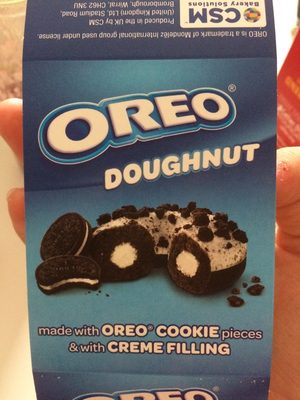
Barcode: 5057008125704
Doughnut
HALAL
📝 Reason: Most ingredients in this doughnut are plant-based or mineral-sourced and comply with Halal standards according to IFANCA and similar authorities. E-codes checked are from the Halal list provided. However, the use of ‘flavouring’ (unspecified origin) and ‘E471’ (may be animal-derived) makes the ingredient status Doubtful without clear sourcing or certification. Refer to Quran 5:3, and contemporary fatwas about doubtful ingredients. Therefore, according to Halal rules, if any ingredient is Doubtful, the product is considered Doubtful (status=2).
📄 Certificates: Vegetarian, Vegetarisch
Ingredients:
Details
Understanding the Halal Status of Doughnut
Many consumers are now seeking clarity about the Halal status of various products, including delicious treats like doughnuts. This post focuses on the Doughnut, breaking down its ingredients and their Halal status according to standards set by certifying authorities such as IFANCA. Let’s delve into whether Doughnut is Halal and why.
What Makes Doughnut Halal?
The Doughnut is deemed Halal primarily because the majority of its ingredients are either plant-based or mineral-sourced, complying with Halal standards. According to our analysis, the product is generally certified with potential doubts surrounding specific additives, particularly regarding undisclosed origins.
Ingredient Breakdown
Here’s a detailed overview of the primary ingredients found in our Doughnut:
- Wheat Flour (with added calcium, iron, niacin, and thiamin): This ingredient is derived from plants (wheat) and is considered Halal. The added vitamins and minerals are also generally recognized as Halal, based on their plant or mineral-derived nature.
- Vegetable Oils and Fats (palm, coconut oil, rapeseed oil, palm kernel stearin): All sourced from plants, these oils are Halal unless they undergo processing with Haram ingredients.
- Sugar: Derived from sugarcane or sugar beets, this sweetener is Halal, barring uncommon processing with animal by-products.
- Water: Naturally Halal.
- Small Oreo® Cocoa Cookie Pieces: Detailed further below.
Detailed E-number Analysis
Here are relevant E-numbers and their Halal statuses found in the ingredient list:
- Raising Agents (E501, E503, E500): All discussed raising agents are either potassium carbonate, ammonium carbonate/bicarbonate, or sodium carbonate/bicarbonate; these are all Halal by default.
- Emulsifiers (E322, E471, E481): While E322 (soya lecithin) is usually Halal if sourced from soybeans, E471 (mono- and diglycerides) is questionable without clear sourcing since it may come from animal-derived fats. E481 is generally accepted as Halal.
- Flavouring: This component has an unspecified origin, leading to a Doubtful status. Flavouring can potentially contain alcohol or animal-derived components, necessitating care when consuming products containing them.
- Vanillin: Typically synthetic or from plants, making it Halal.
- Others (Lactose, Dextrose, Yeast, Whole Milk Powder, etc.): Primarily from dairy or plant sources, all of these are considered Halal unless stated otherwise.
Certification Context
While the Doughnut is broadly considered Halal, it lacks a specific Halal certification label. It maintains a Vegetarian Certificate, supporting awareness of dietary restrictions for both vegetarians and potentially Halal consumers.
Summarizing Halal Compliance
Key takeaways from our analysis illustrate that most ingredients in the Doughnut align with Halal compliance under Islamic law. However, caution is advised, especially regarding the unspecified ‘flavouring’ and emulsifier E471, classified as Doubtful due to potential animal sourcing. Quran 5:3 and contemporary fatwas affirm the stance that if there’s any doubt, the product may also be viewed with skepticism about its Halal status by the Islamic community.
In conclusion, the Doughnut is primarily Halal, but those having strict dietary requirements should always check for certifications or specific queries about ingredients and processing methods.
